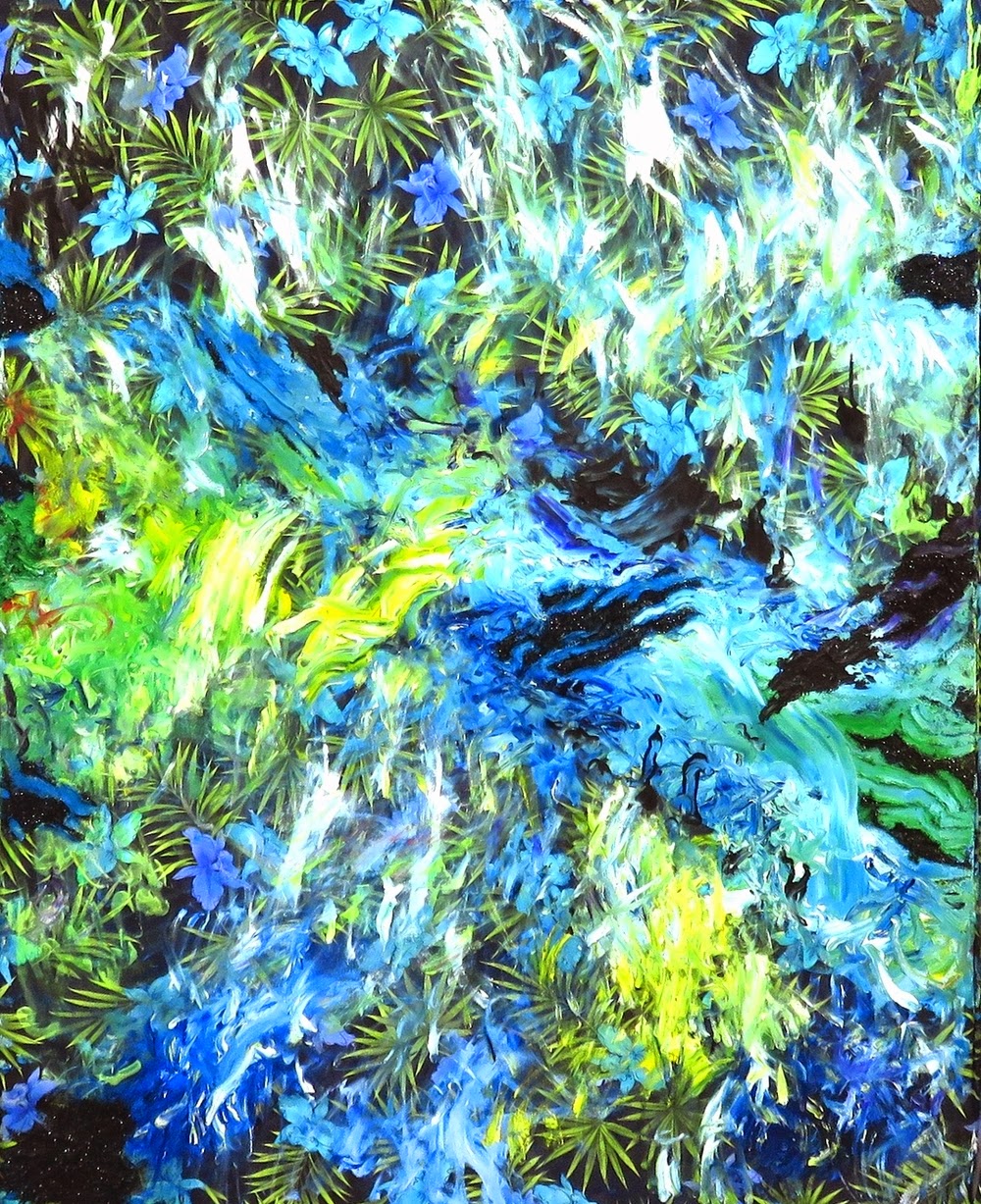Ada Bobonis
PR ART NEWS - Zawahra Alejandro presents work by
a diverse group of artists whose innovative approach to depicting abstraction,
urban landscapes, and the disappointments and victories of everyday life reveal
a unique relevance during the New York City 2015 Armory Week. March 4 until
March 8, 2015. Official opening March 5, 2015 – 6 to 10pm
Ivelisse
Jiménez and Gracjana
Rejmer-Cánovas have abandoned the production of traditional painting in
favor of creating solid works of art that establish refreshing dialogues. They
do so by actualizing abstract concepts onto geometric, color-field formations
that captivate the viewer. For Ivelisse Jiménez, elements of concurrence,
contraction, and uncertainty are inherent to her work. Her constructions
consist of adapting diverse industrial materials in a manner that takes full
advantage of the exhibition space and showcase a hidden and not-so-hidden
meaning. Conversely and inversely, Gracjana Rejmer’s uncommon works are
composed of disparate textiles that she submerged in pigmented water—allowing
for a rare artistic yielding of control as the final color results depend on
the manner and level of saturation in which the various fabric textures can
absorb color. The process produces provocative contrasts that subtly reference
the effect of time and the beauty of decay while yielding truly one-of-a-kind
pieces.
Ivelisse Jiménez
Ada Bobonis’ work
focuses on various panoramas—urban habitats that are under construction,
isolated locales, and areas that have no discernable definition. Through the
mediums of photography and sculpture, the artist depicts settings in which the
past and present coexist in a state of permanent contradiction. Sebastian Vallejo’s large-scale
works integrate chromatic fabrics that carry visual and cultural allusions to
the tropics of the Caribbean island from which he stems. In a process of two,
Vallejo’s work either showcases a direct transfer of the fabric’s flora and
fauna to canvas, or the incorporation of fabric onto the canvas which is then
enhanced with hand-applied paint in a seemingly haphazard manner that yields a
shockingly harmonious ode to color and country. The artist’s work—in both cases
of approach—exhibits the realization and universal language of experiment
behind historical works of abstract art.
Orlando Vallejo
Ernesto
Cánovas explores the concept of irony with beautifully
conceived works of art that showcase the depravity and atrocities forged by the
human race. Cánovas uses a unique style of light manipulation to showcase
dimensional, pulverized landscapes that seen all at once, instill a reflective
quality in which the viewer is forced to see past the painting’s beauty and
acknowledge the essence of the artist’s statement. The intentional idealization
and beautification of a serious subject matter in an attempt to both hide and
display the artist’s disquietude with said subject, is a characteristic that
both Cánovas and Héctor Madera’s
works of art share. In Madera’s latest body of work, drawings of faces inked
with woe or joy, illustrated geometric forms, and abstract doodles all give
shape to feelings of melancholy and mirth felt through multifarious states of
confusion and clarity. To engage the viewers and to simultaneously create an
ambience in which the artist’s frustrations are discernible and
tangible—Madera’s riotously-colored creations are exhibited on photography
backdrop paper that flows from the ceiling to the floor. Not of the do-not-touch
variety, Madera’s interactive exhibit performs dual functions—it allows the
artist to attempt to work out his frustrations through the viewer’s
participation and immersion in the art itself, while also allowing our
selfie-obsessed generation to have fun and take that coveted selfie.
Héctor Madera’s
Zawahra Alejandro Gallery 119 Ludlow St. New York, NY Additional Info: www.zawahra-alejandro.com

(300dpi)(CMYK).png)



Comentarios
Publicar un comentario